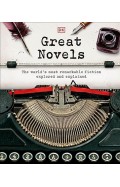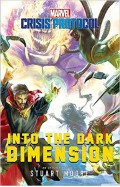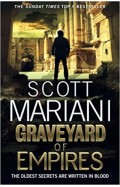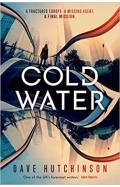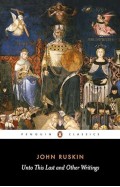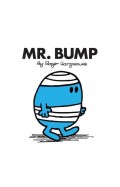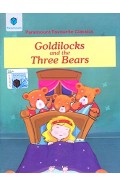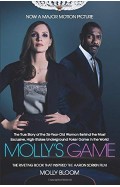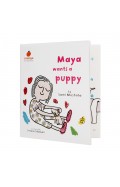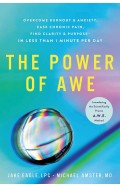All Marketers are Liars
By: Seth Godin
-
Rs 3,145.50
- Rs 3,495.00
- 10%
You save Rs 349.50.
Due to constant currency fluctuation, prices are subject to change with or without notice.
Legendary business writer Seth Godin has three essential questions for every marketer:
“What’s your story?”
“Will the people who need to hear this story believe it?”
“Is it true?”
All marketers tell stories. And if they do it right, we believe them. We believe that wine tastes better in a $20 glass than a $1 glass. We believe that an $80,000 Porsche is vastly superior to a $36,000 Volkswagen that’s virtually the same car. We believe that $225 sneakers make our feet feel better—and look cooler—than a $25 brand. And believing it makes it true.
As Seth Godin has taught hundreds of thousands of marketers and students around the world, great marketers don’t talk about features or even benefits. Instead, they tell a story—a story we want to believe, whether it’s factual or not. In a world where most people have an infinite number of choices and no time to make them, every organization is a marketer, and all marketing is about telling stories.
Marketers succeed when they tell us a story that fits our worldview, a story that we intuitively embrace and then share with our friends. Think of the Dyson vacuum cleaner, or Fiji water, or the iPod.
But beware: If your stories are inauthentic, you cross the line from fib to fraud. Marketers fail when they are selfish and scurrilous, when they abuse the tools of their trade and make the world worse. That’s a lesson learned the hard way by telemarketers, cigarette companies, and sleazy politicians.
But for the rest of us, it’s time to embrace the power of the story. As Godin writes, “Stories make it easier to understand the world. Stories are the only way we know to spread an idea. Marketers didn’t invent storytelling. They just perfected it.”
Legendary business writer Seth Godin has three essential questions for every marketer:
“What’s your story?”
“Will the people who need to hear this story believe it?”
“Is it true?”
All marketers tell stories. And if they do it right, we believe them. We believe that wine tastes better in a $20 glass than a $1 glass. We believe that an $80,000 Porsche is vastly superior to a $36,000 Volkswagen that’s virtually the same car. We believe that $225 sneakers make our feet feel better—and look cooler—than a $25 brand. And believing it makes it true.
As Seth Godin has taught hundreds of thousands of marketers and students around the world, great marketers don’t talk about features or even benefits. Instead, they tell a story—a story we want to believe, whether it’s factual or not. In a world where most people have an infinite number of choices and no time to make them, every organization is a marketer, and all marketing is about telling stories.
Marketers succeed when they tell us a story that fits our worldview, a story that we intuitively embrace and then share with our friends. Think of the Dyson vacuum cleaner, or Fiji water, or the iPod.
But beware: If your stories are inauthentic, you cross the line from fib to fraud. Marketers fail when they are selfish and scurrilous, when they abuse the tools of their trade and make the world worse. That’s a lesson learned the hard way by telemarketers, cigarette companies, and sleazy politicians.
But for the rest of us, it’s time to embrace the power of the story. As Godin writes, “Stories make it easier to understand the world. Stories are the only way we know to spread an idea. Marketers didn’t invent storytelling. They just perfected it.”
This is Marketing: You Can’t Be Seen Until You Learn To See
By: Seth Godin
Rs 3,865.50 Rs 4,295.00 Ex Tax :Rs 3,865.50
Purple Cow - Transform Your Business by Being Remarkable
By: Seth Godin
Rs 2,515.50 Rs 2,795.00 Ex Tax :Rs 2,515.50
Zubin Mehta: A Musical Journey (An Authorized Biography)
By: VOID - Bakhtiar K. Dadabhoy
Rs 892.50 Rs 1,050.00 Ex Tax :Rs 892.50
Purple Cow - Transform Your Business by Being Remarkable
By: Seth Godin
Rs 2,515.50 Rs 2,795.00 Ex Tax :Rs 2,515.50
The Origins of Political Order From Prehuman Times to the French RevolutioN
By: Francis Fukuyama
Rs 4,045.50 Rs 4,495.00 Ex Tax :Rs 4,045.50
Manning Up: How the Rise of Women Has Turned Men into Boys
By: Kay Hymowitz
Rs 845.75 Rs 995.00 Ex Tax :Rs 845.75
The Obama Syndrome: Surrender At Home War Abroad
By: Tariq Ali
Rs 1,100.75 Rs 1,295.00 Ex Tax :Rs 1,100.75
The Quest For Meaning: Developing A Philosophy Of Pluralism
By: Tariq Ramadan
Rs 1,185.75 Rs 1,395.00 Ex Tax :Rs 1,185.75
Purple Cow - Transform Your Business by Being Remarkable
By: Seth Godin
Rs 2,515.50 Rs 2,795.00 Ex Tax :Rs 2,515.50
The Ages of Globalization - Geography, Technology, and Institutions
By: Jeffrey D. Sachs
Rs 8,695.00 Ex Tax :Rs 8,695.00
Loot - How Israel Stole Palestinian Property
By: Adam Raz
Rs 7,915.50 Rs 8,795.00 Ex Tax :Rs 7,915.50
Great Novels - The World's Most Remarkable Fiction Explored and Explained
By: DK
Rs 5,755.50 Rs 6,395.00 Ex Tax :Rs 5,755.50
Friends Forever Wherever Whenever - A Little Book of Big Appreciation
By: Karen Salmansohn
Rs 1,185.75 Rs 1,395.00 Ex Tax :Rs 1,185.75
The Fear and the Freedom: Why the Second World War Still Matters
By: Keith Lowe
Rs 2,120.75 Rs 2,495.00 Ex Tax :Rs 2,120.75
Into the Dark Dimension - A Marvel: Crisis Protocol Novel
By: Stuart Moore
Rs 2,695.50 Rs 2,995.00 Ex Tax :Rs 2,695.50
Jane Austen - Poems Both Inspiring and Witty from the Author of 'Pride and Prejudice' And 'Emma'
By: Jane Austen
Rs 1,795.50 Rs 1,995.00 Ex Tax :Rs 1,795.50
Harry Potter 1-3 Box Set: a Magical Adventure Begins
By: J. K. Rowling
Rs 6,295.50 Rs 6,995.00 Ex Tax :Rs 6,295.50
Back of the Box Cooking 30Minute Meals
By: Barbara Greenman
Rs 1,780.75 Rs 2,095.00 Ex Tax :Rs 1,780.75
The Nazi Conspiracy: The Secret Plot to Kill Roosevelt, Stalin, and Churchill
By: Brad Meltzer
Rs 4,945.50 Rs 5,495.00 Ex Tax :Rs 4,945.50
Molly's Game - The Riveting Book That Inspired the Aaron Sorkin Film
By: Molly Bloom
Rs 797.50 Rs 1,595.00 Ex Tax :Rs 797.50
The Power of Awe: Overcome Burnout & Anxiety, Ease Chronic Pain, Find Clarity & Purpose ― In Less Than 1 Minute Per Day
By: Editors of Klutz
Rs 3,325.50 Rs 3,695.00 Ex Tax :Rs 3,325.50
Zubin Mehta: A Musical Journey (An Authorized Biography)
By: VOID - Bakhtiar K. Dadabhoy
Rs 892.50 Rs 1,050.00 Ex Tax :Rs 892.50
This is Marketing: You Can’t Be Seen Until You Learn To See
By: Seth Godin
Rs 3,865.50 Rs 4,295.00 Ex Tax :Rs 3,865.50
Purple Cow - Transform Your Business by Being Remarkable
By: Seth Godin
Rs 2,515.50 Rs 2,795.00 Ex Tax :Rs 2,515.50
Purple Cow - Transform Your Business by Being Remarkable
By: Seth Godin
Rs 2,515.50 Rs 2,795.00 Ex Tax :Rs 2,515.50













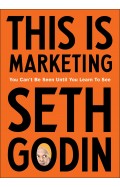
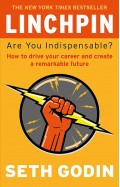
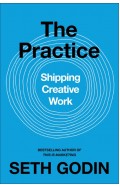
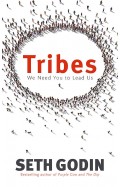
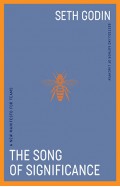
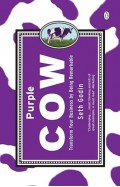


-120x187.jpg?q6)





-120x187.jpg?q6)











